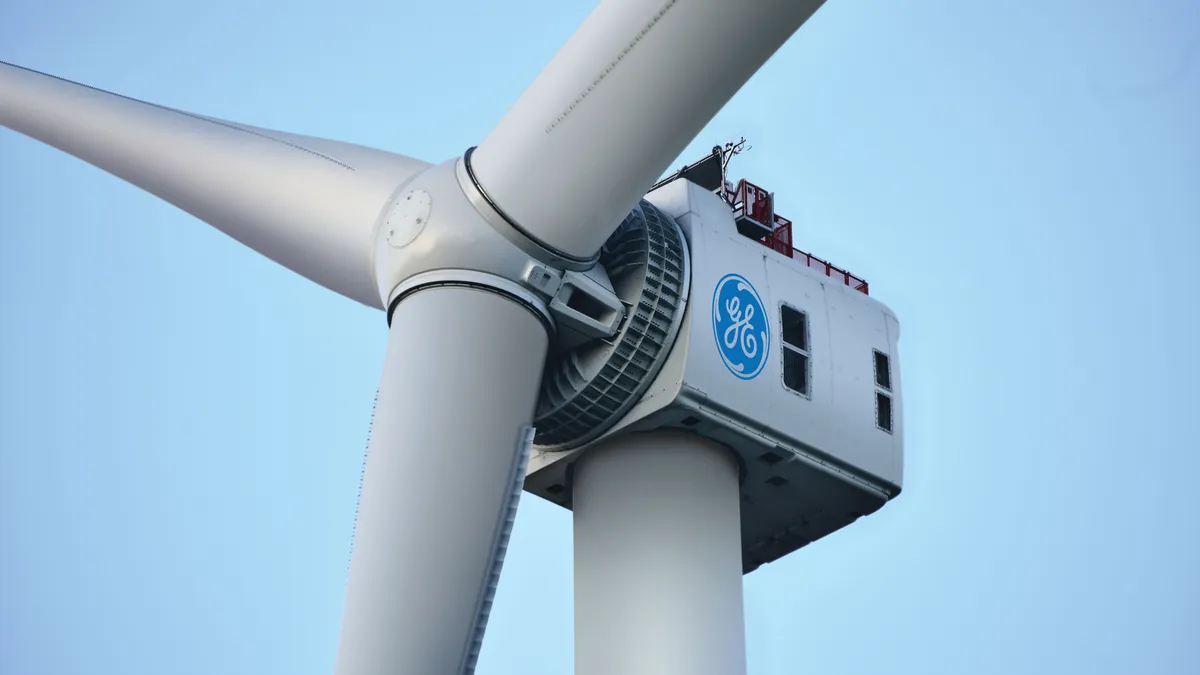Dive Brief:
- The U.S. Department of Energy launched the Better Climate Challenge, a voluntary public-private carbon reduction initiative, on Monday.
- Participants in the challenge, which so far include organizations such as Avangrid, Exelon Corp., the Cleveland Clinic Foundation, Siemens, Xerox and others, will work together to cut carbon emissions from their operations by at least 50% over the next ten years.
- Organizations participating in the challenge indicated at a roundtable on Monday that the challenge aligns with existing goals and will help identify economy-wide carbon solutions.
Dive Insight:
Leaders from nearly all sectors of the U.S. economy met virtually on Monday to kick of the DOE’s latest carbon reducing program: a data-sharing challenge in which participants commit to cutting operational emissions by 50% within a decade.
The challenge will focus on Scope 1 and Scope 2 greenhouse gas emissions — that is, emissions created directly by the participating organization, as well as emissions associated with the purchase of electricity, heating or cooling. Participants will also set an energy efficiency target as part of the challenge.
Throughout the challenge, participants will publicly share the details of how they accomplish their goals in order to identify solutions for other similar organizations in the years to come, U.S. Secretary of Energy Jennifer Granholm said on Monday.
“If each of you pulls these reductions off, it is going to be an impressive feat on its own, but what makes this a bigger deal is the commitment to share the details of how you did it,” Granholm said. “That’s going to allow us to illuminate pathways for emissions reductions that similar organizations are going to be able to follow.”
More than 90 organizations representing nearly every sector of the U.S. economy have already signed up for the challenge, Granholm said, including representatives in healthcare, manufacturing, education, retailers, housing and public service industries. Any organization with a portfolio of buildings is eligible to join the challenge.
Jon Utech, senior director of the Office for a Healthy Environment at the Cleveland Clinic, said he hoped participation in the challenge would help to engage healthcare workers demoralized by the pandemic.
“Our work is firmly rooted in the idea that human health and environmental health are linked. We see climate change as the greatest health threat of this century,” he said.
Joyce McConnell, Colorado State University president, expressed similar sentiments about her faculty and students. Other participants, including the Maryland governor’s office, said they joined the challenge because it aligned with their existing goals, while retailers and manufacturers spoke of a desire to reach climate-conscious consumers and housing sector representatives touted potential benefits to low-income residents.
“There are great opportunities for all of us,” White House National Climate Advisor Gina McCarthy said. “Not just the climate benefits, but also economic and equity benefits as we focus on investing in communities that have been left behind.”














